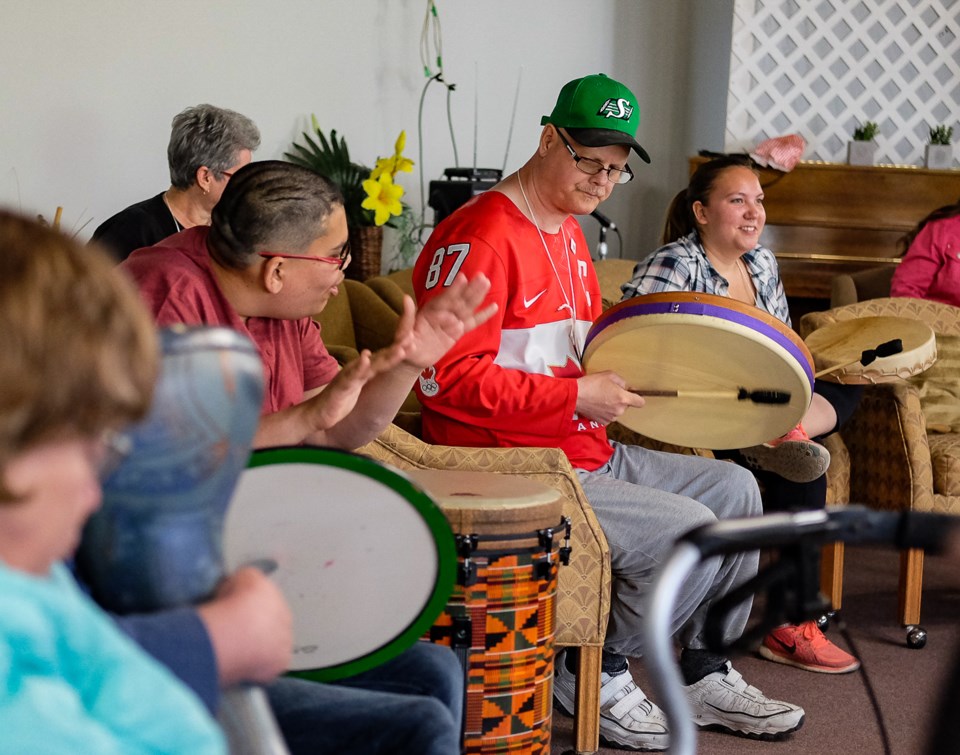June is Brain Injury Awareness Month, and the Saskatchewan Brain Injury Association (SBIA) has launched a national campaign alongside other brain injury associations to talk about the prevalence and challenges of living with an acquired brain injury.
SIBA executive director Glenda James shared some staggering statistics to emphasize the reality of brain injuries.
Every day, 452 Canadians suffer a serious brain injury, which equates to one person per minute. National data shows that almost 1.5 million people are currently living with an acquired brain injury, and approximately 165,000 serious brain injuries are sustained in Canada every year.
“The message we're sending out with our multi-year campaign is that brain injury can happen to absolutely anyone, anywhere, anytime,” said James.
This year’s campaign will be largely done online and through social media, as the current pandemic restrictions are preventing the SBIA from hosting events in person like usual.
But despite the changes on the calendar, the overall message once again this year is one of prevention, said James.
The most common cause of serious brain injury in Saskatchewan is motor vehicle and recreational vehicle accidents, continued James, next to any situation that causes a lack of oxygen to reach the brain.
“The number of young people who are just out having fun on these expensive, dangerous toys, and lose all of the things they expected life to be for them, it's overwhelming,” said James.
The SBIA works year-round to spread its message of safety, as preventing brain injuries from occurring is really the only way to lower the number of brain injuries in the country.
“Prevention is the only cure,” said James. “We seek to prevent because there are too many injuries that happen and we'd like to reduce that number, but while we do that people also need support.”
What makes Brain Injury Awareness Month so important is that the awareness aspect is actually two-fold — with one goal being to promote safety and prevention, and the other to shed some light on the realities of living with an acquired brain injury.
People living with brain injury are also the least supported group of people with disabilities, said James, in terms of government funding. There are very few specialized care programs and no brain-injury specific housing available in Saskatchewan, to provide appropriate supports.
Care often falls to families and spouses, said James, which can be difficult.
“The need [for housing] is real, and it's a huge issue that needs to be addressed,” said James. "Brain injury does not happen to only the individual who received the trauma. It affects absolutely everybody in their circle, their family and their friends."
As part of an ongoing project to raise more awareness, the SBIA has collected stories from people whose lives have been changed by a serious brain injury, available to explore on their YouTube channel.
The SBIA is also asking the community to support the association through donation, as it is a charitable organization that works to prevent brain injuries through education and supports survivors and their families.
The national campaign feels especially important this year, as the province’s pandemic regulations have forced the SBIA to cancel all of its local member programming activities and the annual summer camp event.
People living with a brain injury already experience isolation due to their injury, as it can interfere with hearing, vision, and cognitive function, and so the loss of programming has been tough on many of the SIBA’s regular members.
“It's been very difficult for people, many people live alone and don't have a support system and that's a problem,” said James. “And [camp] is the highlight of some people's year, it's usually their holiday and losing it has been really tough.”
To help fill the gap and alleviate feelings of isolation, the SIBA is instead organizing in-person, socially distanced visits to member’s homes, for the time being, to drop off care packages and stay in touch.
This past week, SBIA staff dropped off protective face masks for members, and James is in the process of organizing a doorstep version of the drumming program normally offered to members.
“We felt it was important, to stay in touch with people and make sure they're okay,” said James. "There's an awful lot of awkward moments, doing things six feet apart] but in general, people are just so happy that we're checking in on them, they're happy to regain that contact."
The extended program is more costly than normal, said James, and with all of the associated fundraisers cancelled indefinitely, the SBIA is in need of support to continue.
"If people think that's a worthwhile project, they can make a donation through our website," said James.
More information about the Saskatchewan Brain Injury Association can be found on their website, which is also where anyone interested can make a financial donation to the charitable organization.




